Well, we’ve made it! After eight episodes of block-building, corridor-traversing, and gateway-opening, the Process has come to an end along with the first season of Netflix’s 3%. “Capsule” and “Button” wrap up season one in a series of twists and turns and — more importantly — push our central cast of characters into the more uncertain waters that they’ll have to traverse in season two.
Warning: spoilers for the entire first season of Netflix’s 3%.
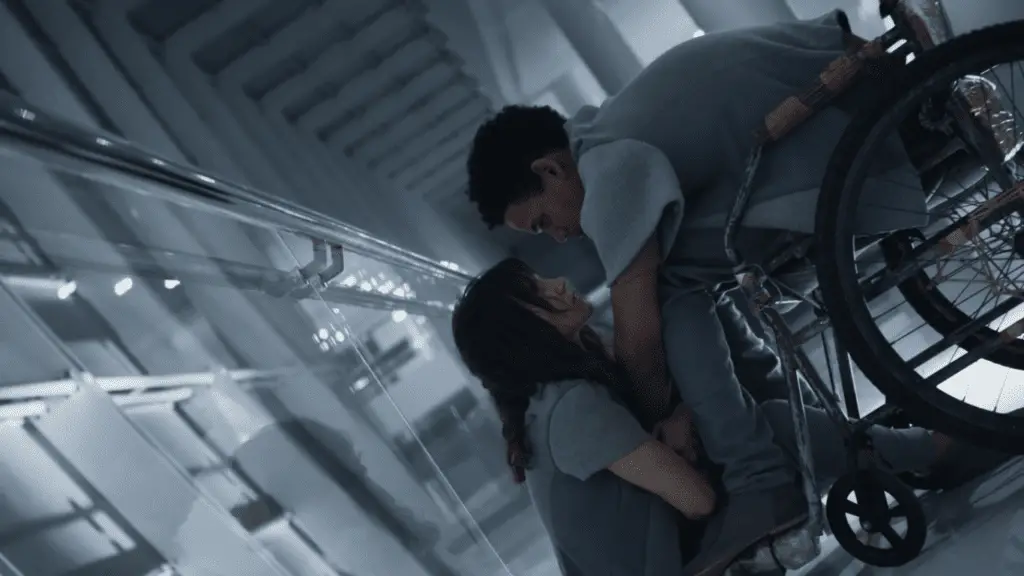
Episode 7 – Capsule
The episode starts where “Glass” left us, with Michele stitching her wound. A flashback reveals the content of the capsule she just retrieved: poison, given to her by the Cause leader so she doesn’t compromise their secrets if she ever gets caught. Clearly Michele has other plans.
With the end of the Process, it’s celebration night in the Selection Facility. In the next day the approved candidates will undergo a Purification ritual and be sent Offshore, but today they’ll have dinner with the Process employees, now their peers. A nervous Michele ignores Fernando’s attempts to talk to her, while watching Ezequiel attentively. She approaches the head of the Process pretending to congratulate him and drops the poison in his drink.
Ezequiel proposes a toast to the new Offshore citizens and Cesar drinks from the poisoned glass. The Process organizers rush to assist him as Michele watches horrified. Rafael pretends to be drunk to send her the message that he knows what she did and Fernando knows about them. So Michele and Fernando finally talk, and he tells her he doesn’t care she’s a mole, he just wants to be with her. Their conversation is interrupted by ominous alarms, and armed Process mooks enter the room.
The doctors have confirmed Cesar’s death wasn’t an accident and Cassia identified the poison as the same substance the Cause uses, meaning they have a mole among the candidates. Ezequiel interrogates them one by one, to Michele’s panic. When her turn comes, he sees blood coming from her cut and her cover story doesn’t seem to convince him. She leaves the interrogation on the verge of a breakdown, until Fernando calms her and says he lied because of her and if she gives up he’ll be in trouble too.
Ezequiel calls a meeting with the council saying they found the responsible for Cesar’s death — it’s Aline. He claims she’s a member of the Cause and makes the Cause prisoner from “Cubes” lie to corroborate his story. Aline tries to send the council evidence of Ezequiel and Augusto’s meetings, but Nair intercepts the files. She says Aline will be held Offshore until she has a fair trial, but none of them seem to believe she’s innocent.
The Process organizers announce to the candidates they found the mole, to Fernando’s relief and Michele’s puzzlement. The candidates slowly return to their rooms, and when Michele enters hers she finds Ezequiel there, with the empty capsule in his hands.
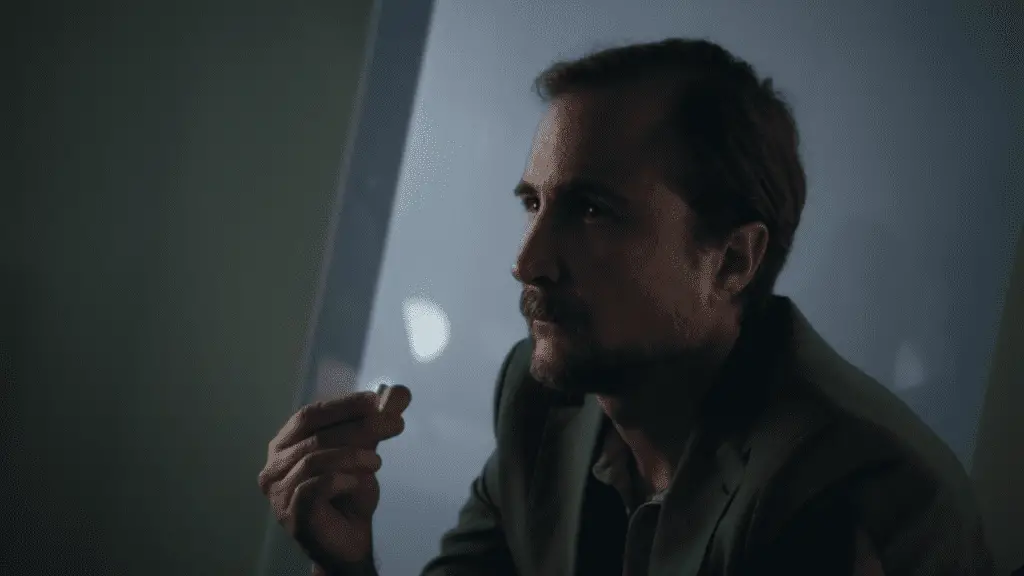
Episode 8 – Button
It’s the candidates’ last day Inland, and Fernando can’t find Michele anywhere. When Ezequiel insists she was eliminated, Fernando decides to quit the Process. He looks for her in the Selection Facility, until a Process employee says he was eliminated and closes the gate in his face. He stands outside the complex, demanding answers and Michele’s presence.
Meanwhile, Michele was tortured by the Process organizers. Ezequiel releases her and demands to know why she was trying to kill him. She confesses she wanted revenge for her brother, a Cause agent killed by Ezequiel. Plot twist: Ezequiel reveals Michele’s brother was never a Cause agent, he passed the Process on Ezequiel’s first year as head and how lives Offshore. Michele doesn’t believe him, until Ezequiel shows her pictures of her brother older, happier and very much alive. Plot twist strikes again: Ezequiel tells her he was a Cause agent himself, until he learned there’s no such thing as inequality, only people with merit and people without it. He wants the Cause leader and Michele may survive if she tells how to find him. Ezequiel leaves her alone watching videos of her brother being happy Offshore.
Rafael and Joana go to the Purification ritual, but Cassia comes for Joana saying Ezequiel has other plans for her. Joana is uneasy, but Cassia explains this means Joana’s special. After they leave, Ezequiel reveals to the remaining candidates that the “Purification ritual” is the sterilization of all people that go Offshore. He proudly explains that the key to a superior society is merit and the only method to evaluate it is the Process. That way everyone Offshore knows they earned their place. A horrified Rafael realizes he’ll never be able to raise his children Offshore as he dreamed to, and he has to decide if he still wants to go.
Both Rafael and Michele are conflicted and each of them takes a different path. Rafael remembers his conversations with Ivana, who told him the Cause goals are not just about his children but about everyone else’s too, and decides to accept the sterilization. Michele gives Ezequiel the location of the Cause leader, but denies the existence of other moles. She expects Ezequiel to kill her, but he welcomes her to the 3%. He says once he was in her position too and he changed, so she may change as well. She’ll be taken to a Recovery and Treatment Center (RTC) Offshore and he’ll keep an eye on her.
Joana finally learns what Ezequiel wanted: he says she can be more than just a regular Offshore citizen, but he needs to know she understands the difference between Offshore and Inland. Gerson, the man who put a price on Joana’s head, is restrained in the adjacent room and all Joana has to do is to push a button and he’ll die a painless death. Joana refuses, saying she’s not a killer. Ezequiel says this isn’t true and he feels ashamed for believing in her. Joana laughs at his face and gives him a beautiful “The Reason You Suck” speech. She says Ezequiel thinks he can change everyone’s minds but he can’t, mirroring Julia’s words for him in “Water”. Ezequiel yells her to go away and she gladly does, meeting Fernando on the way out.
As the season ends, we see what has become of each character. Ezequiel has a breakdown thinking about Joana, Julia, and everything that happened so far. Joana and Fernando merrily head back Inland, though Fernando is sad to see his father still preaches pro-Process rhetoric. Ivana is proud that two of the Cause moles passed the Process. Aline heads back Offshore, after convincing Cesar’s widow that they both need to find out what truly happened. Rafael sees Michele returning and notices she’s changed. They finally reach Offshore.
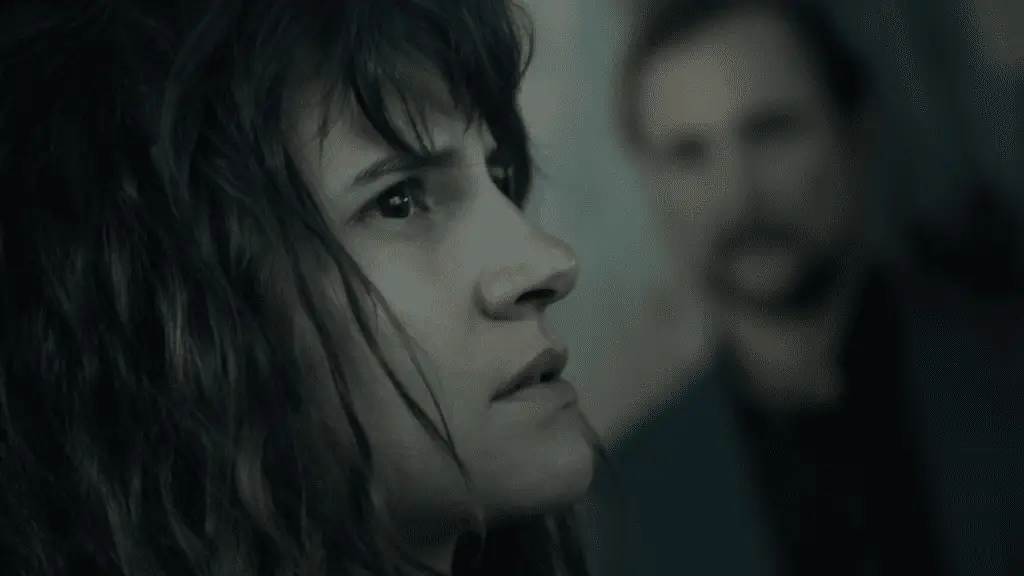
“Capsule” and the World’s Worst Mole
Katie: “Capsule” was exciting! Like a suspense thriller episode of 3%.
Priscilla: Yes! It works because you don’t really know what’s going to happen. Michele is so nervous she can ruin everything. Fernando knows too much and has no training in pretending he’s not aware of a murder conspiracy. And Rafael got dragged into this as well, and both Fernando and Michele know his identity as a mole. So basically you have three characters who can be potentially screwed, in a TV series that already showed us with Marco that important characters can be killed.
Katie: Thanks to Michele.
Priscilla: The world’s worst mole, hahaha!
Katie: She really is. One of my favorite parts of the episode was just a little moment near the end where Rafael made a little hand gesture at her that basically said “Michele. Please. Calm down.”
Priscilla: Yes! She didn’t watch Frozen: conceal, don’t feel.
Katie: Hahaha! I guess she did well enough, though, because no one really bats an eye when Aline takes the fall. I wasn’t expecting that (though it did make sense looking back).
Priscilla: It was a pretty bold move to end the next-to-last episode with your villain on top. Though I have to say Nair intercepting Aline’s file was a bit… okaaaay… that’s not really how files work, I guess?
Katie: Yes! Cyber security must be a nightmare Offshore.
Priscilla: Right? And come on, nobody realized the Cause prisoner could be forced to say those things? Especially because he didn’t sound convincing at all? I think this won’t be the last we see of Aline. The widow seemed interested to hear her version of things and we never learned what happened after this conversation, but I bet Aline has a plan. Especially because she still has the files she sent, so, you know, project them in the fucking ocean once you get Offshore, Aline. And I haven’t thought about this until now, but for Ezequiel it’s really bad to take Aline Offshore. He could keep an eye on her in the Selection Facility, but Offshore this seems harder.
Katie: Yeah, and it seems like he’ll be very outnumbered. He had a near-limitless support system at the Facility. Offshore, she’ll have direct access to Matheus and all his resources too. It bought Ezequiel some time, but who knows what he’ll do from there. But to be fair, he didn’t really have a lot of options once Cesar was killed.
Priscilla: Yeah, things actually turned out pretty nice for him, because I don’t think he would find a better opportunity to get rid of Aline. I feel the only way for her to recover is to give them all of Ezequiel’s dirty secrets. And I’m not sure she knows that much.
Katie: That’s true. I don’t have a good grasp on how really terrible the Ezequiel–Augusto connection is. But I don’t think she has much else that he couldn’t simply deny.
Priscilla: Yes, you touched one important issue: it isn’t clear to me why Ezequiel–Augusto is a bad thing. The show tells us it’s really bad, because Ezequiel tries to hide this from everyone, Aline feels confident she has Ezequiel on her hand once she finds out, Nair stops supporting Ezequiel after she finds out… But why?
Katie: Yeah. I get why it would be a moral breach and all that — since he’s the head of the Process and he’s presumably supposed to avoid playing favorites. And it raises questions about how he can believe in “everyone creating their own merit” while also insisting that he use his position to help out one person. With the reveal that the last step of the Process is sterilization, I guess it makes more sense. It seems like one of the big principles of the Offshore is that family privilege is never passed down to new generations, just to keep things “fair.” So maybe the fact that Ezequiel is appearing to be doing that is a pretty serious breach of custom.
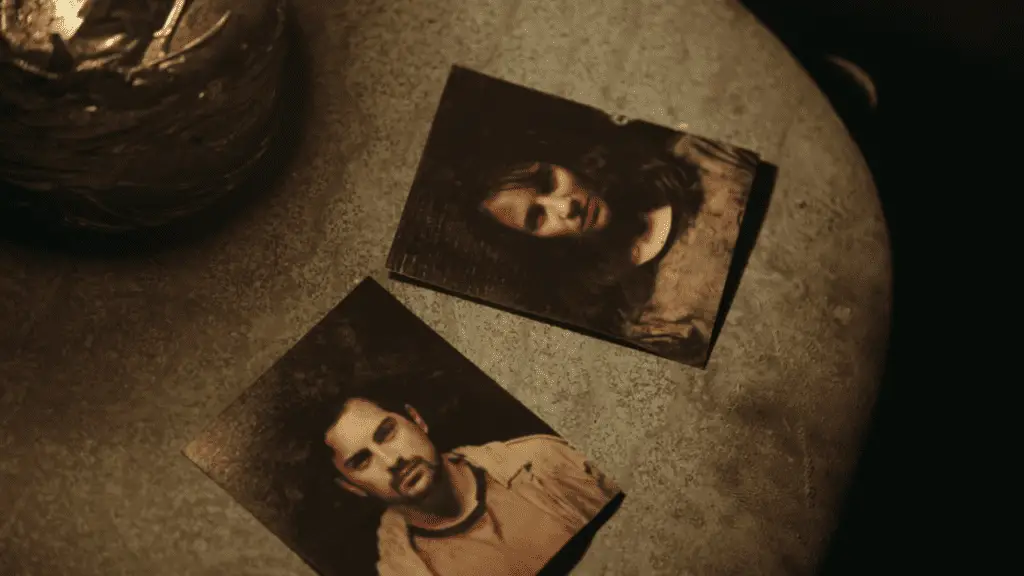
The “Button,” the Process, the Cause
Priscilla: If “Capsule” was more centered on suspense and mood, “Button” had a lot of stories to finish. Not all of them successful.
Katie: Agreed. I liked it overall, but a couple of the show’s earlier issues (especially from “Glass”) caught up to it. It didn’t ruin the show, or anything. And some things did work really well. One thing I liked was the portrayal of the Cause and the Offshore, both of which come across pretty badly.
Priscilla: Yeah, the Cause’s treatment of Michele especially. What an awful way to recruit somebody — “Hey I know the only way you’ll do this is personal reasons, so let me lie to you about your personal reasons and ignore the fact that you seem inclined to fuck everything for those personal reasons.”
Katie: But at the same time, the Process or Offshore never gets glorified either. All four of the candidates we’re still following either distrust the Process or have actively worked against it. And I like that. I think the nuance is good for the show.
Priscilla: Yes, same. It would be too easy if the Process was obviously bad and the Cause was obviously good. A lot of dystopias fail with that, because their governments are so obviously awful and the alternative is so obviously better that I can’t see why they have to wait for Special Brunette to have a revolution.
Katie: “The government is so evil, but everyone in this year’s class is blonde! What can we do?!”
Priscilla: Hahahaha! Right? Especially because, well, if real life resistance movements are anything to go by, people often do awful things fighting an awful government. It’s so much easier when the rebels are good people! But no, this time we saw they were willing to use a terrible lie that ruined the life of a little girl just to further their goals. It’s not very “heroic.” But I think the heroism of the show is in the small actions, like Joana’s in the finale.
Katie: Yes! I think it’s really interesting how the show makes a distinction between personal and social morality. The Cause seems to care very little for personal, individual sacrifices in the name of the greater good. On the other side, Joana isn’t willing to kill someone (even someone who hurt her) despite being promised it was for a good cause. And then you have people like Rafael who are probably somewhere in the middle.
Priscilla: And then there’s Ezequiel. I still can’t decide if him being part of the Cause in the past makes him more nuanced or feels inconsistent. Because Ezequiel is so, SO Offshore-supremacist it’s hard to believe he was a part of the Cause.
Katie: I feel like it kind of came out of nowhere? But on one level I could see it making sense. There are cases where people are raised very religiously and then become militant atheists (and the reverse). What’s that phrase? “no zealot like a convert” or something like that.
Priscilla: That’s true. In a way this would explain why he seems more Offshore-supremacist than most Offshoreans? Are you trying to compensate something, Ezequiel?
Katie: Haha, exactly! And when you make a total reversal like that, I can see you being VERY touchy about people questioning you (as Ezequiel usually is). But I also feel like it happened abruptly.
Priscilla: Yes, I’m conflicted about it for those same reasons. On one hand, it adds a whole new layer to Ezequiel and casts a new light over his actions and beliefs. On the other, I’m not sure this was seeded properly. It feels a lot like Plot Twist™
Katie: Did you think it was realistic that Ezequiel (at least mostly) let Michele go?
Priscilla: Well… Sort of. When Michele got caught I was genuinely worried about her. But when Ezequiel released from her torture, I thought “okay, he’s only doing that because she’s a main character, because that Cause prisoner was left to rot”. I understand that Ezequiel sees himself a bit in Michele, and that he had just the right information to make her “his”, but still… It does seem a bit plot armor-ish. A plot leather armor, not a plot mithril armor, but still.
Katie: Hahaha! And it’s not like he’s just letting her go, I guess. Ezequiel said he was sending her to the RTC, which is not a good sign on this show.
Priscilla: And Ezequiel should know that. Michele is still pretty screwed. I was really sad for her when she discovered her brother was still alive.
Katie: I feel like I’ve made fun of Michele a lot but her story is really sad. She was preyed upon when she was really lonely and shoved into a situation she hadn’t been properly prepared for.
Priscilla: Yes! She risked so much for a revenge that didn’t even exist. It must be awful to realise that the people you risked your life for lied to you about the very reason that made you risk your life.
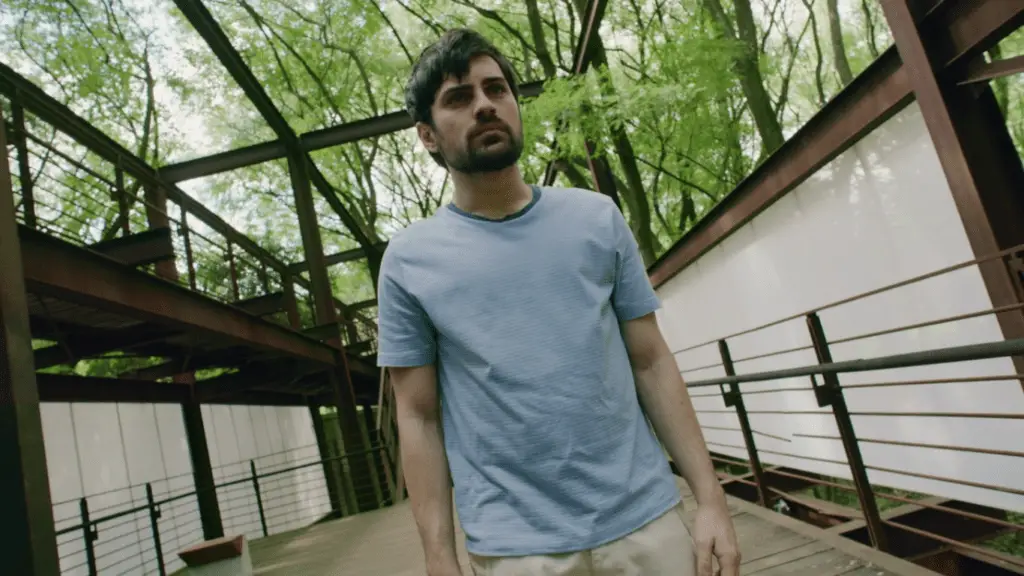
The Purification Ritual
Katie: Priscilla, your streak continues! You mentioned the question of whether people have kids in Offshore society after “Gateway,” and you were right to pick up on that! Because the answer to that question is “they don’t.” It was an interesting reversal, too. This isn’t a subject I know a lot about, but when I read stories about mandatory sterilization, I tend to associate it with disenfranchised groups. Here it’s a marker of the elite.
Priscilla: Yes! That’s a very good point. And it matches all the horribleness of Offshore and how high they place the “merit” of being there. But I really like this revelation. It’s one thing if you don’t plan to have kids and another to know you can’t. It also helps establish how far the pro-Process speech and Offshore-supremacism goes, as well as create a good conflict for Rafael.
Katie: I like it too. Because it makes perfect sense if you take the principles of the Offshore and extend them – if you have a totally equal society based solely on merit you shouldn’t have kids that you’d favor over others. But it’s also really upsetting! And aww, yeah. I really felt for Rafael.
Priscilla: Yes! This was well seeded, because every time Rafael talked about Offshore and his relation with the Cause, he expressed how much he wanted a better world for his children. It wasn’t hammered, but when they revealed it I knew immediately how much this meant for the character. And it’s interesting because the sterilisation is meant to be one final sacrifice you make to be worthy of Offshore, but for Rafael it was one final sacrifice for the Cause. In a way I wanted him to do it, because I want him to advance his goal of fighting this stupid system. But it’s a cruel thing to ask.
Katie: Yeah, I do want him to keep fighting the system. It just made me sad that he’d sacrifice something so important to him for an organization that seems selfish and ineffective in lots of ways.
Priscilla: Yes. By the way, as a character note: it’s interesting to notice that Ivana was pretty chill when the eliminated moles say they didn’t make it. This makes me think that Rafael’s efforts to join the Process again were his own initiative, because he thought he was disappointing the Cause, rather than something the Cause made him do.
Katie: Yes! And one more detail — it’s a small one, but I was a little glad that it was a guy who was most upset about giving up his chance to have kids. Rather than a woman.
Priscilla: YES, I WROTE THAT ON MY NOTES
Katie: It was so refreshing! I thought this plotline was probably the strongest of “Button.” It worked really well for both Rafael’s character and the world building of the show as a whole. And we upended some more tropes!
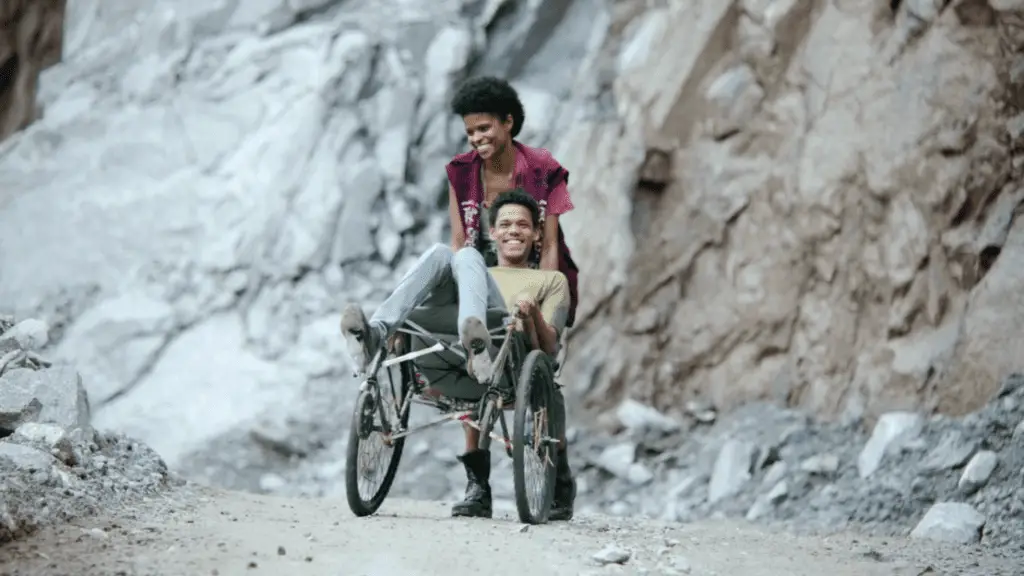
Joana and Fernando
Priscilla: Not everything worked, though. Look at Fernando. He had a potentially interesting arc: the average person brainwashed by dreams of Process learns what the Process really is about. But he was sidelined for a few episodes and came back mostly as a love interest. So the potential was there, but he was hands down the most underused character.
Katie: Yes. I think they messed up his story up in “Glass,” when they couldn’t decide if what he most cared about was determining how he felt about The Process or just being with Michele.
Priscilla: I understand that for the tension of “Capsule” to work, Fernando has to be either very disappointed with the Process or madly in love with Michele, preferably both. They needed him in a certain place emotionally, so they just… put him there. A big part of his personal development happened off-screen. Besides, even though it’s refreshing to see a disabled character in the position of love interest, I feel Fernando became too much of a love interest. All his actions on the last two episodes were motivated solely by his feelings for Michele. It doesn’t help that so often those feelings seem very one-sided.
Katie: Yes, exactly. He became a side character in Michele’s story. In some ways I’m almost glad they’re separated now — he’ll be forced into his own arc.
Priscilla: And I’m glad to see him leaving with Joana, because their dynamic has a lot of potential. Joana is more ruthless and realistic and Fernando is sweet and tends to idealize things/people… Both of them changed a lot, but they could still be an interesting contrast.
Katie: How did you feel about Joana’s story line?
Priscilla: It would be too grimdark if Joana had killed Gerson and become Ezequiel 2.0, but I was a bit worried for her. Then she said no and I thought “THAT’S MY CHILD”. Joana’s speech to Ezequiel made my heart sing, paid my bills, feed poor children, and gave blind puppies back their sight. I’m glad she — Ezequiel’s favorite, the character that had every reason to benefit from Offshore and every reason to hate Inland — was the one to say this, and I loved how she mirrored Julia’s speech.
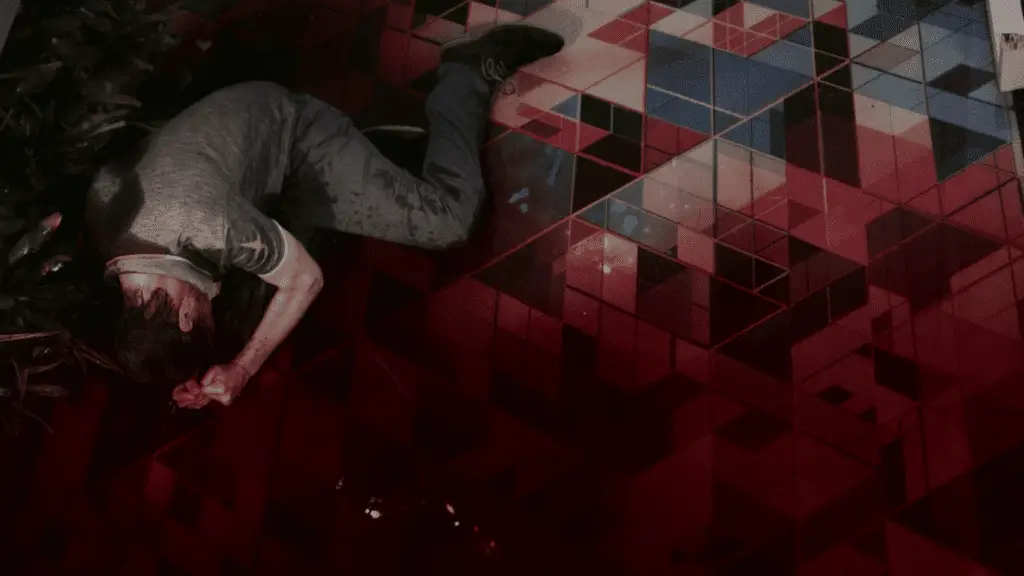
Final Thoughts
Priscilla: So! Now that we ended the first season and discussed each episode, what are your thoughts on 3%?
Katie: I really enjoyed it! I was impressed throughout out the series about how quickly it was able to create a really interesting and realistic setting as well as a really solid set of characters. I think it stumbled a little bit towards the end, but never really in a major way. Given how much happened, it would have been easy for it to feel lazy or rushed, or like it was withholding information in a manipulative way. But it never really did. Like we’ve been saying, having such a good central cast of characters has helped a lot. Did you have a favorite episode?
Priscilla: Uuuh, good question. I would have to think about it, but I’d say that “Water” left the strongest impression on me. “Corridors” and “Gateway” were an excellent duo, especially regarding Joana’s and Rafael’s development, and “Button” had great character moments too, if a little rushed. And the pilot may not look so exciting now, but I still think it did a great job establishing characters and setting.
Katie: Good point. It did a good job establishing the “look” of the show — especially the opening scene and the cube-building scene.
Priscilla: And it introduced us to four main candidate characters that were different from each other, but none of them felt flat. And we had a pretty diverse cast, that’s always something to praise.
Katie: Yes! They were all pretty flawed in their way. But I really liked and cared about all of them.
Priscilla: Yes, me too. And I still do. That’s why I want season two to focus on the same characters, because I care about them and at the same time there’s so much we still haven’t seen about them and interesting directions for each character from now on.
Katie: I want to know that they’ll be okay!
Priscilla: Right? Me too, hahaha. What you liked most about the show?
Katie: I like that the show takes such a small-scale view of big-picture issues. It seems to really care about its characters. And whenever we learn something about the Inland, or Offshore, or anything like that, it has an extra layer of personal meaning for someone. It’s a very personal and emotional show, and I was sort of expecting it to be a big, generic, dystopian kind of thing.
Priscilla: I’ve said this before, but I think the show made the right decision in focusing so much on the characters. It would be easy to have “just another dystopia” or “just another grimdark story” and the characters are key to avoid that. And, you know, it’s still pretty dystopian and sad, but it never falls into grimdark. So it shows you can have a dark premise and setting and still have a story that is honest to its characters and audience and doesn’t punish us for caring. I also like how it incorporates small details of Brazilian culture, like the soundtrack or football uniforms on extras, mixes it with a very Brazilian conflict, but still remains a universal show.
Katie: Oh, I’m glad! I feel like I missed probably like 90% of those details, but never in a way where I felt I didn’t understand the show.
Priscilla: And I suppose we should talk about this too: what didn’t you like about the show?
Katie: Not much, to be honest. I think the part that bothered me the most was Fernando’s inconsistent characterization. Since that’s usually the show’s strong suit, it bothered me when it wasn’t there (especially when it would have been a pretty easy fix). It’s tough to judge at this point – a lot of this season is going to look better or worse depending on what happens next, I think.
Priscilla: Yes, good point. I feel most of what bothered me is connected to what wasn’t shown rather than what was. Like Fernando’s rushed characterization or all those character dynamics we didn’t see much of… And there’s a lot about the worldbuilding we don’t know yet. I’m happy with the amount of information we got this season, but I have a lot of questions and I’m gonna be disappointed if I don’t get a few answers next season.
Katie: Yes! Exactly. Right now it feels like they’re just spreading out the reveal of information, which I like. If they don’t have the answers at all, then it’ll be a lot easier to go back through this season and find problems. Like, does Brazil as a country exist at this point? Is it 3% of all of Brazil? Or just this city / community?
Priscilla: Yeah, what happened to the rest of Brazil? Did it become a giant desert? Was it shattered in several small communities? And they talk about 3%, but 3% of how much? The final 3% were half a dozen kids, which tells me that 100% of their population must be much lower than our current 100%.
Katie: I don’t know! When we first started watching I assumed there were other selection facilities in other parts of the country, but they’re never mentioned and Ezequiel is supposed to be in charge of the whole Process, I think.
Priscilla: Yes. And even if there were other selections, how would they send the candidates Offshore? How would the candidates that live in the middle of nowhere reach any selection facility? And based on the picture in the credits, Offshore is not that big. So I’m really curious to know what happened to the rest of the country and, to be honest, what’s happening in the rest of the world too. Is everywhere Mad Max wasteland, or just Brazil? “What are Brazilians up to this time?” “I heard they’re sending kids to an island” “Should we do anything about it?” “nah”
Katie: HAHAHA. Everything else is 100% normal. Even the rest of Brazil is like “huh, what are those guys doing up there?”
Priscilla: HAHAHAHA. “We’re selecting the chosen ones, stop meddling, Paulo”
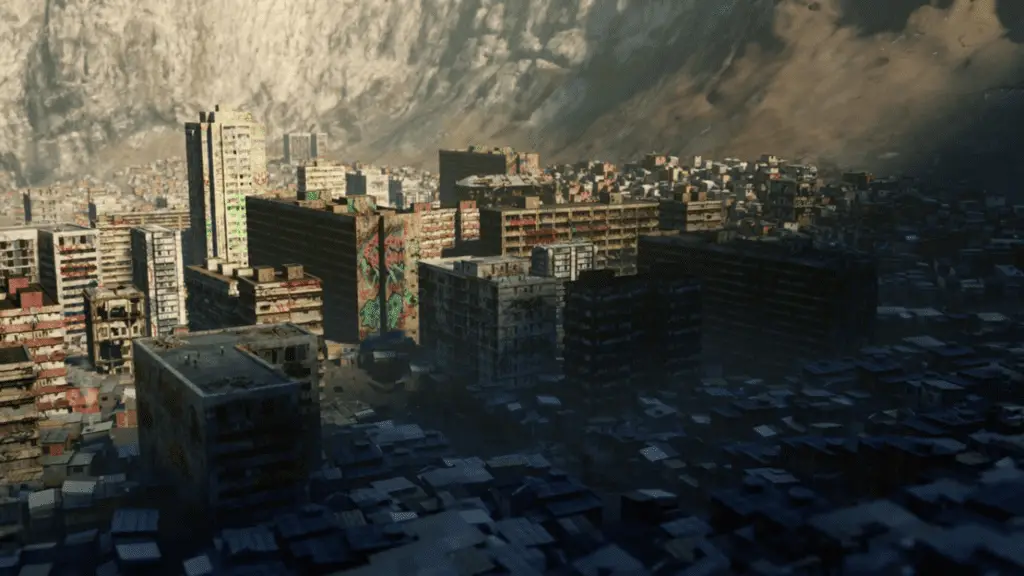
Season Two?
Katie: Like we’ve been saying, there was a lot of stuff set up in this season finale. And it raises a lot of questions about what will happen in season two. I think it was an ambitious way to end the season. There’s a lot set up, but if they manage to pull it off it could be really great.
Priscilla: Yes! They weren’t afraid to try new things with their characters. Rafael is pretty much the only one that got where he wanted, but at a great personal cost. Joana quit the Process, but I think the journey changed her. Fernando quit the Process in very different terms, and I feel really sorry for him. Joana giving up the Process was a high point for the character’s agency, but Fernando was the opposite: he left because of someone else.
Katie: Oooh, that’s a great point. Another reason I’m glad they’re pairing up.
Priscilla: I wonder if they will join the Cause?
Katie: I was wondering that too. There’s a part of me that thinks Joana isn’t quite trusting enough. But at the same time, I think they need someone like her. I’d like a storyline for Joana where she learns more about the Cause but acts on her own terms. And Fernando’s interesting as well. I feel like he’s lived for his father’s dreams and then for Michele’s dreams. As much as his ending here is sad, maybe it’ll help him figure out what he wants. Or he’ll live for the Cause’s dreams.
Priscilla: It’s almost like Fernando is always clinging to something — to his belief in the Process, to Michele… The Cause would be a logical next point. And it would be really sad because he would be following Michele’s path in a way, and doing all of this for a person who has essentially moved on. I also wonder what Rafael would think if he learned the story of Michele’s brother. Would he think it was a fair thing to do? I mean, he poisoned his brother to steal his ID, he certainly has a very large notion of what is fair to do for the Cause. On the other hand, he did this because he chose to, and Michele didn’t act the way she did because she chose to, but because they lied to her. Would he have a crisis of faith, similar to Fernando’s?
Katie: Yes! I’m hoping he does find out about that. Because I think it would challenge how he thinks about things for just the reason you said. I feel like Rafael’s character has to have a crisis of faith about the Cause at some point.
Priscilla: Yes. I’m kinda sad for him because he’ll realize he sacrificed a lot for a group with serious issues. His fave was deeply problematic. But like we said about Joana, this could be a good opportunity for him to fight on his own terms. I don’t want any of the characters to give up their beliefs and become Ezequiel 2.0, I just want them to realize the issues with this particular group
Katie: I feel like I want them to all become disillusioned just enough that they group together and find a better alternative to fighting the Process, haha. I feel like that’s kind of a trope — teenagers save the world! — but as long as it’s done in an interesting way I’m on board
Priscilla: Yes, me too.
Katie: One of the other interesting thing about next season — one I think that will be really important in whether it succeeds or fails — is that everyone is split up now! Since one of the strengths of the show was its character interactions, it’ll be interesting to see how the deal with the fact that the characters are split into two locations that theoretically should have zero contact with each other.
Priscilla: Yes! I’m sad Joana and Rafael never got to interact much again after the third episode. I thought they had a really interesting dynamic and now they’re on different sides and I don’t expect them to interact again.
Katie: I feel like something has to happen to make them interact. I feel like they wouldn’t keep the characters apart forever. Not sure how they’ll manage it though. I’d guess that we’ll follow them in separate story lines for a while and then… something will happen to bring them together? It is a tough spot, though. Because I’m assuming Michele and Rafael won’t really be able to interact with each other either. So it’ll be a lot of characters on their own and it’ll be a tougher season to structure.
Priscilla: Yeah. I don’t think the show would benefit from making a new Process with new characters and wasting the ones they already have, so the focus would be on Offshore and Inland instead of the Process. That could be an interesting change! Because I feel we know a lot about the Process, but very little about Offshore and Inland
Katie: Oh god, I never even thought of that! New characters and a new Process would make me mad, haha. Though if I’m being honest, I am gonna miss everyone hanging out and solving puzzles together.
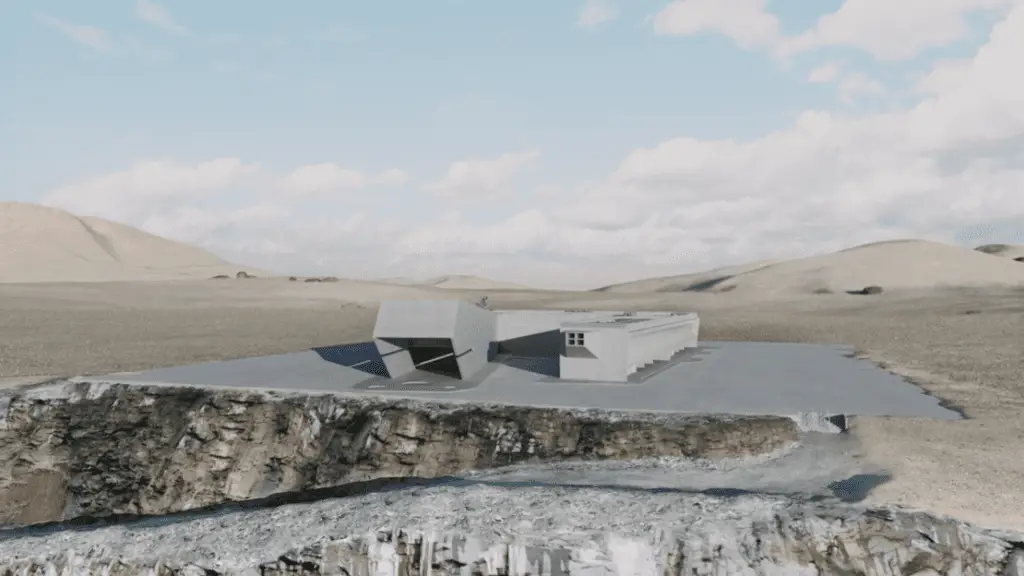
It’s only been eight episodes, but 3% has really established itself as a creative and interesting show, grounded in its characters. So much dystopian fiction seems to pride itself on its grittiness and willingness to inflict suffering on its characters, but 3% walks a fine line: it acknowledges the difficulties and inequities of the world but doesn’t wallow in them, and it always treats its characters with both empathy and hope. We definitely recommend that you catch up on Netflix, so that you can watch with us when season two arrives!
Images courtesy of Netflix.
[starbox id=”Priscilla,Katie W”]

